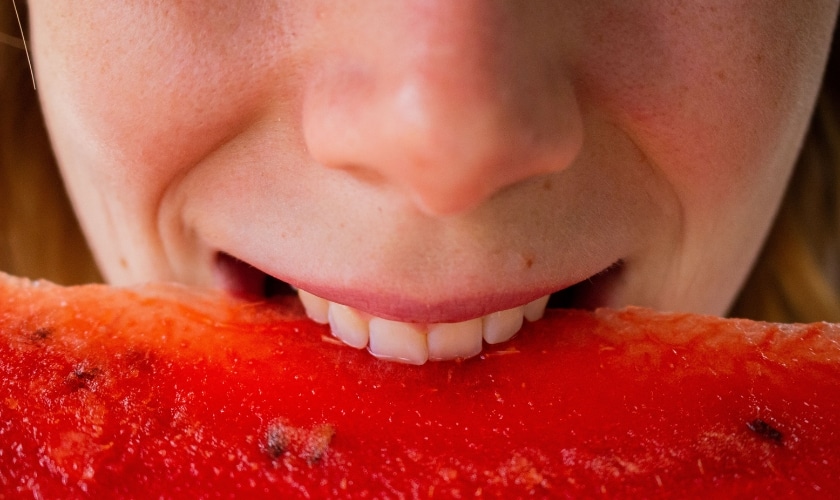Understanding Dry Mouth: Causes & Symptoms
Dry mouth, also known as xerostomia, is a condition characterized by a lack of adequate saliva production in the mouth. Saliva plays a crucial role in our oral health by:
- Lubricating the mouth: Saliva keeps your mouth moist, allowing for easier speaking, swallowing, and tasting.
- Aiding digestion: Saliva contains enzymes that break down food particles, making digestion smoother.
- Washing away bacteria: Saliva helps wash away food debris and bacteria, preventing cavities and gum disease.
When saliva production is reduced, you may experience a range of uncomfortable symptoms, including:
- Dryness and discomfort in the mouth
- Difficulty speaking and swallowing
- A persistent feeling of thirst
- Sore throat
- A metallic taste in the mouth
- Cracked lips
- Bad breath (halitosis)
Dry mouth can significantly impact your quality of life. If left unaddressed, it can increase your risk of cavities and gum disease.
There are several factors that can contribute to dry mouth, including:
- Medications: Many medications list dry mouth as a side effect, including antihistamines, antidepressants, decongestants, and some blood pressure medications.
- Dehydration: Not drinking enough fluids is a common cause of dry mouth.
- Medical conditions: Certain medical conditions, such as Sjögren’s syndrome, diabetes, and some autoimmune diseases, can affect saliva production.
- Age: As we age, saliva production naturally decreases.
- Lifestyle habits: Smoking, tobacco use, and excessive alcohol consumption can contribute to dry mouth.
If you are experiencing symptoms of dry mouth, it’s important to consult your Oak Forest dentist to determine the underlying cause and discuss treatment options.
The Power of Hydration: Beverages for Dry Mouth Relief
While incorporating the right foods into your diet can significantly improve dry mouth symptoms, staying adequately hydrated is the foundation of relief. Here are some of the best beverages to keep your mouth moist and comfortable:
- Water: This may seem obvious, but water is the single most important drink for overall health and dry mouth relief. Aim for eight glasses of water per day, or more depending on your activity level and climate.
Pro Tip: Add a squeeze of lemon or cucumber to your water for a refreshing twist.
- Unsweetened Teas: Herbal teas are a soothing and hydrating beverage choice. Look for options like chamomile, peppermint, or green tea, which may offer additional benefits like promoting relaxation or fresh breath.
- Coconut Water: This natural source of electrolytes is a delicious and refreshing way to replenish fluids and electrolytes lost due to dry mouth.
Remember: Limit sugary drinks, caffeinated beverages (coffee, soda), and alcohol, as they can worsen dry mouth symptoms in Oak Forest.
Food Fighters: Munching Your Way to Moisture
When it comes to dry mouth, food can be your friend! Here are some delicious and effective food choices to keep your mouth hydrated and comfortable:
Fruits and Vegetables Conquer Dryness:
- Watermelon: This juicy summer fruit is over 90% water, making it a fantastic natural hydrator.
- Celery: High in water content and with a satisfying crunch, celery also requires more chewing, which can stimulate saliva production.
- Cucumber: Similar to celery, cucumber is refreshing and hydrating and encourages saliva flow through chewing.
- Berries: Packed with flavor and water, berries like strawberries, blueberries, and raspberries are a delicious way to boost hydration.
- Citrus fruits: Grapefruit, oranges, and tangerines offer a juicy and refreshing burst of hydration.
Dairy Delights: Yogurt and Soft Cheeses:
- Yogurt: Plain yogurt, particularly those with probiotics, can be a soothing and hydrating choice. Opt for unsweetened varieties and add some fruit for extra flavor.
- Soft Cheeses: Cottage cheese, ricotta cheese, and mozzarella cheese are all high in moisture content, making them easy to chew and swallow.
Soups and Smoothies: The Comforting Choice:
- Broth-based Soups: Warm, comforting broth-based soups are a great way to add fluids and soothe a dry mouth. Look for options with vegetables or lean protein for added nutrients.
- Smoothies: Blend fruits, vegetables, yogurt, or milk to create a hydrating and delicious smoothie. This is a great way to sneak in extra vitamins and minerals while keeping your mouth moist.
Chew on Relief: Sugar-Free Gum and Candy:
- Sugar-Free Gum: Chewing sugar-free gum can help stimulate saliva production and keep your mouth moist. Choose xylitol-based gum, as it may have additional benefits for oral health.
- Sugar-Free Hard Candy: Sucking on sugar-free hard candy can also increase saliva flow and keep your mouth feeling moist. However, opt for candies sweetened with xylitol or other sugar alcohols to avoid promoting cavities.
Remember, these are just some examples, and the best foods for you may vary depending on your preferences and dietary restrictions.
Dietary Choices That Help: Optimizing Your Diet for Dry Mouth Relief
While incorporating the hydrating foods mentioned earlier is a great start, making some smart dietary adjustments can further improve your dry mouth symptoms. Here are some tips:
Limit Dry Mouth Culprits: Certain beverages and foods can worsen dry mouth. Here’s what to limit:
- Caffeinated Drinks: Coffee, soda, and energy drinks can dehydrate you and exacerbate dry mouth. Opt for herbal teas or water instead.
- Alcohol: Alcohol is a diuretic, meaning it increases urination and can lead to dehydration. Limit alcohol consumption or avoid it altogether if your dry mouth is severe.
- Sugary Drinks: Sugary drinks can promote thirst and contribute to dry mouth. Opt for water or unsweetened beverages.
Adding Moisture-Rich Ingredients: Sauces, gravies, and broths can add moisture to your food, making it easier to chew and swallow. Experiment with flavorful options to keep your meals exciting.
- Avoiding Dry and Sticky Foods: Crackers, chips, cookies, and other dry, sticky foods can be difficult to chew and swallow when experiencing dry mouth. Opt for softer, moister options.
- Maintaining a Healthy Diet: Eating a balanced diet rich in fruits, vegetables, and whole grains ensures your body gets the nutrients it needs to produce saliva. A healthy diet also promotes overall well-being, which can indirectly improve saliva production.
By incorporating these dietary strategies alongside your chosen hydrating foods and beverages, you can create a comprehensive approach to managing dry mouth and keeping your mouth feeling comfortable throughout the day.
Conquer Dry Mouth and Enjoy a Comfortable, Healthy Smile
A dry mouth doesn’t have to be a constant source of discomfort. By making some simple adjustments to your diet, staying hydrated with the right beverages, and incorporating helpful habits, you can effectively manage this condition and experience lasting relief.
Remember:
- Hydration is Key: Water is your best friend! Aim for eight glasses or more per day, and consider adding hydrating fruits and vegetables to your diet.
- Dietary Choices Matter: Limit dry mouth culprits like caffeine and alcohol, and choose moisture-rich foods like fruits, vegetables, and yogurt.
- Explore Additional Relief Options: Saliva substitutes, sugar-free gum, and a humidifier can all provide additional comfort throughout the day and night.
- Consult Your Dentist: If your dry mouth is severe or persistent, seek professional advice in Oak Forest to determine the underlying cause and discuss treatment options.
With a little planning and the right strategies, you can keep your mouth feeling comfortable and healthy, allowing you to enjoy a confident smile and a better overall quality of life.
Frequently Asked Questions
Can dry mouth cause cavities?
Yes, dry mouth can increase your risk of cavities. Saliva helps wash away food debris and bacteria that contribute to tooth decay. Without adequate saliva flow, these elements can linger in your mouth and create a cavity-prone environment.
Are there medications to treat dry mouth?
Yes, there are medications available to treat dry mouth. These may include prescription medications that stimulate saliva production or over-the-counter saliva substitutes. Consult your dentist to discuss if medication is right for you.
Home remedies for occasional dry mouth?
Here are some simple home remedies that may provide temporary relief from the occasional dry mouth:
- Suck on ice chips or sugar-free popsicles.
- Rinse your mouth with cool mist throughout the day.
- Try sugar-free mints or lozenges to stimulate saliva flow.

